10 Best Server Antivirus Software for Beginners
Server Antivirus Software is a program designed to detect and remove malware from your server. It protects server data by scanning files and monitoring for security threats. Beginners can use it to keep server environments safe.
🤖AI Overview:
Server Antivirus Software is designed to protect servers from malware viruses and other security threats. Its main purpose is to detect and remove harmful programs while ensuring the server remains secure and operational. This software is essential for businesses that need to safeguard sensitive data and maintain the reliability of their server environments. By providing continuous protection Server Antivirus Software helps prevent cyberattacks and data breaches.
Top 10 Server Antivirus Software
- TotalAV
- Avast
- Norton
- Bitdefender
- McAfee
- Eset
- ClamAV
- Kaspersky
- Sophos
- Malwarebytes
are introduced as the 10 best server antivirus software in 2024 for Windows and Linux.
Selecting a suitable solution for Windows and Linux is essential, since it:
- Protects private information.
- Minimizes system outages.
- Guarantees the general health of the server.
- Scans files.
- Finds suspicious behavior.
Trusted Antivirus Software for Windows and Linux [Updated 2024]
Choosing a reliable antivirus is the key to securing your operating system after buying VPS.
Let’s check the best antivirus software for Windows and Linux. [Free & Paid]
1. TotalAV
TotalAV is a good choice for Windows, Mac, Android, and iOS users who need a reliable and affordable antivirus solution.
While it doesn’t have a dedicated Linux version, you can still use it on Linux servers. If TotalAV detects Windows malware on a Linux server, it can remove it.
It offers excellent malware protection, a user-friendly interface, and multiple device coverage (paid plans).
However, the free version has limited features, and there may be some upselling during installation.
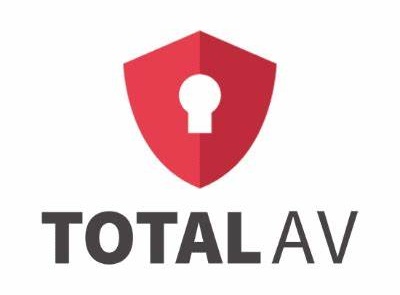
TotalAV Benefits
User-Friendly Interface: Easy to navigate and use, even for beginners.
Real-time Protection: Continuously scans files, downloads, and applications for malware and other threats.
Excellent Malware Detection: Blocks a wide range of malicious software, including viruses, worms, ransomware, spyware, and phishing attacks.
Free Version Available: Offers basic protection for budget-conscious users.
Behavior Analysis: Monitors applications for suspicious activity to identify and neutralize zero-day threats.
Safe Browsing: Protects against malicious websites and phishing attempts.
Scanning Options: Offers various scan types, including quick scans, full system scans, and custom scans.
TotalAV Drawbacks:
Limited Features in Free Version: The free version lacks important features like real-time protection and multi-device support.
Upselling: It may try to upsell you to paid plans during installation.
Potential System Slowdown: Resource-intensive scans might slow down older devices.
2. Avast
Avast Antivirus is a solid option for Windows, Mac, Android, and iOS users looking for a free or affordable antivirus solution with a good range of features.
However, it has limited availability but reliable protection for Linux (Not Free).
Avast is a popular choice for individuals and businesses alike.
The free version provides basic protection, while paid plans offer additional features like a firewall, data breach protection, and password management.
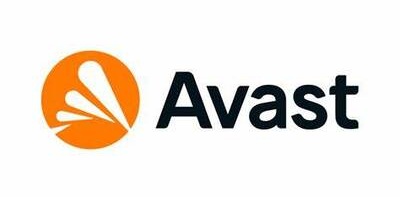
Avast Benefits
Free Version Available: Offers basic protection for budget-conscious users.
Excellent Malware Detection Rates: Performs well in independent tests.
User-Friendly Interface: Easy to navigate and use.
Real-time Protection: Continuously scans files, emails, and websites for malware, viruses, and other threats.
Behavior Shield: Monitors applications for suspicious activity to identify and block zero-day threats.
Wi-Fi Inspector: Detects vulnerabilities in your Wi-Fi network.
Sandbox: Allows you to run suspicious files in an isolated environment safely.
Firewall (paid plans): Monitors incoming and outgoing network traffic to prevent unauthorized access.
Data Breach Protection (paid plans): Monitors your email address for data breaches on the dark web.
Password Manager (paid plans): Securely stores and manages your passwords.
Avast Drawbacks
Limited Features in Free Version: The free version lacks important features like real-time protection, a firewall, and advanced threat detection.
Potential Privacy Concerns: Past controversies regarding data collection practices
Resource Consumption: It may slow down older devices during scans.
3. Norton
Norton Antivirus is a well-established name in the cybersecurity world, offering a range of features to protect your devices.
It is a powerful, reliable security solution with excellent malware detection and various features, especially in paid plans.
It supports Windows, macOS, Android, and iOS and is unavailable on Linux.
Past concerns regarding data collection practices exist. However, Norton has taken steps to address these concerns and offers transparency about data usage.
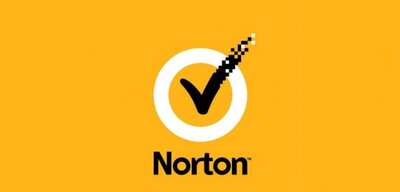
Norton Benefits
Excellent Malware Detection: Consistently performs well in independent tests, offering robust protection against known and emerging threats.
Real-time Threat Protection: Continuously scans files, emails, websites, and network traffic to identify and block threats in real time.
Behavior Monitoring: Analyzes application behavior to detect and prevent zero-day attacks.
Advanced Features (paid plans): Norton offers additional features in its paid plans, including:
Firewall: Monitors incoming and outgoing network traffic for unauthorized access.
VPN: Encrypts your internet traffic for secure browsing and private access to geo-restricted content.
Password Manager: Securely stores and manages your passwords.
Customer Support: Norton provides various customer support options, including live chat and phone support. However, quality and wait times might vary depending on the plan.
Dark Web Monitoring: Tracks your personal information on the dark web to alert you of potential data breaches.
Parental Controls: Manages screen time, filters websites, and monitors online activity for your children.
Multiple Device Protection: Secure all your devices (Windows, Mac, Android, iOS) with a single subscription (paid plans).
Norton Virus Protection Promise: A unique feature in some plans that offers a refund if Norton cannot remove a virus from your device.
Norton Drawbacks
Limited Features in Free Version: The free version offers basic protection but lacks real-time scanning and advanced features.
Resource Consumption: Scans and other processes might slow down older devices.
Subscription Costs: Paid plans can be expensive compared to some competitors.
Upselling: It may try to upsell you to premium features during installation.
4. Bitdefender
Bitdefender Antivirus safeguards Windows, macOS, Android, and iOS devices from malware, viruses, ransomware, phishing attacks, and other online threats.
Bitdefender also provides Endpoint Security Tools for Linux, which offer malware protection for popular Linux operating systems.
As a powerful and reliable security solution, it utilizes real-time protection, advanced threat detection, and various scanning options to keep you secure.
It offers a free version for basic protection and various paid plans with advanced security features.
While limited, the free version is a good option for budget-conscious users who want basic protection.
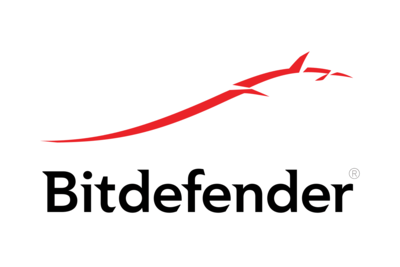
Bitdefender Benefits
Excellent Malware Detection: Consistently ranks high in independent tests, offering reliable protection against known and emerging threats.
Advanced Threat Detection: Employs machine learning and behavioral analysis to identify and block zero-day attacks.
Real-time Protection: Continuously scans files, emails, websites, and network traffic to identify threats in real time.
Multi-Layered Protection: Offers various security features, including:
Anti-phishing: Protects against fraudulent websites designed to steal your information.
Vulnerability Scan: Identifies weaknesses in your system and software for patching.
Safe Browsing: Warns you about malicious websites before you visit them.
Minimal System Impact: Scans and other processes are designed to be lightweight, minimizing impact on device performance.
Multiple Device Protection: Secure all your devices (Windows, Mac, Android, iOS) with a single subscription (paid plans).
Additional Features (paid plans): Bitdefender offers advanced features in its paid plans, including:
Firewall: Monitors incoming and outgoing network traffic for unauthorized access.
VPN: Encrypts your internet traffic for secure browsing and private access to geo-restricted content.
Parental Controls: Manages screen time, filters websites, and monitors online activity for your children.
Password Manager: Securely stores and manages your passwords.
Bitdefender Drawbacks
Limited Features in Free Version: The free version offers basic protection but lacks advanced features like real-time scanning and parental controls.
Subscription Costs: Paid plans can be slightly more expensive compared to some competitors.
Upselling: It may try to upsell you to premium features during installation.
System Requirements: Check Bitdefender’s website to ensure your device meets the minimum system requirements
5. McAfee
McAfee Antivirus is a veteran in the cybersecurity industry, offering a shield against ever-evolving digital threats.
It is a well-established security solution only for Windows, macOS, Android, and iOS users with effective malware protection and a range of features (especially in paid plans)
While limited, the free version provides a decent security baseline for budget-conscious users.
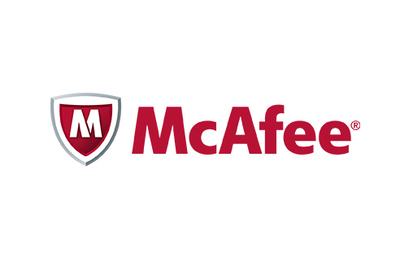
McAfee Benefits
Solid Malware Protection: Performs well in independent tests, offering reliable defense against known and emerging threats.
Real-Time Guardianship: Continuously scans files, emails, websites, and network traffic to identify real-time dangers.
Multi-Layered Security (Paid Plans): Offers a layered security approach, including:
Anti-phishing: Shields you from fraudulent websites designed to steal your information.
Vulnerability Scanner: Identifies weaknesses in your system and software for patching.
Safe Browsing: Warns you about malicious websites before you visit them.
Lightweight Protection: Designed to minimize impact on your device’s performance.
Multi-Device Coverage (Paid Plans): Protects all your devices (Windows, Mac, Android, iOS) with a single subscription.
McAfee Drawbacks
Limited Features in Free Version: The free version offers basic protection but lacks real-time scanning and advanced features.
Subscription Costs: Paid plans can be pricier compared to some competitors.
Upselling Tactics: It may try to persuade you to upgrade to premium features during installation.
6. Eset
ESET Antivirus stands guard against the ever-present threats lurking in the digital world.
Eset is a reliable security solution with excellent malware detection, multi-layered protection, and a focus on performance.
It offers limited availability for Linux, unlike its well-rounded support for Windows and macOS.
ESET Antivirus is a vigilant sentinel, safeguarding your devices from malware, ransomware, phishing attacks, and other online dangers.
It employs real-time protection, advanced threat detection, and multi-layered security to keep you safe.
ESET NOD32 Antivirus is the core antivirus product offered by ESET, providing essential protection features.
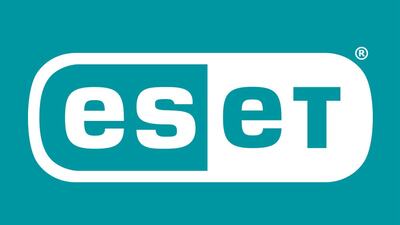
Eset Benefits
Award-Winning Protection: Consistently recognized by independent testers for its robust protection against known and zero-day threats.
Multi-Layered Security: Offers a comprehensive security approach, including:
Behavior-Based Detection: Identifies and blocks suspicious application activity.
Network Inspection: Monitors incoming and outgoing network traffic for malware and other threats.
Anti-phishing: Protects you from fraudulent websites designed to steal your information.
Lightweight and Efficient: Designed to minimize impact on your device’s performance.
Gaming Mode (Windows): Optimizes resource usage during gameplay for an uninterrupted gaming experience. (Windows only)
Multi-Device Coverage (Paid Plans): Protects all your devices (Windows, Mac, Android) with a single subscription (paid plans)
Customer Support: Offers various customer support options, including live chat, email, and knowledge-base articles
Eset Drawbacks
Limited Features in Free Version: The free version offers basic scanning but lacks real-time protection and advanced features.
Fewer Features for macOS/Android (Compared to Windows): Feature sets might be slightly less comprehensive on macOS and Android than on Windows.
7. ClamAV
ClamAV stands out as a free and open-source antivirus champion, specifically designed to safeguard Linux systems.
It is an antivirus toolkit that identifies and eradicates malicious software like viruses, trojans, malware, and other threats.
ClamAV primarily focuses on scanning files for known malicious patterns.
Its lightweight nature and customizability make it a popular choice for many Linux users.
ClamAV shines brightest on Linux distributions, seamlessly integrating with most package managers for easy installation and updates.
Note: While technically possible, porting it to other operating systems might require additional configuration.
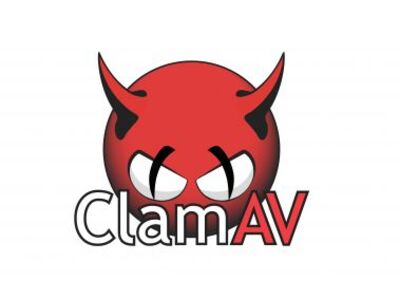
ClamAV Benefits
Free and Open-Source: Freely available for anyone to use and modify, fostering a collaborative community that contributes to its ongoing development.
Lightweight and Resource-Friendly: Designed to minimize impact on system performance, making it suitable even for older computers.
Highly Customizable: Offers a high degree of customization for advanced users who want to tailor scanning behavior to their specific needs.
Integrates with Email Servers: This can be seamlessly integrated with mail servers to scan incoming and outgoing emails for malware, adding an extra layer of security.
ClamAV DrawBacks
Real-time Protection (Limited): This relies primarily on on-demand scans, meaning it doesn’t continuously monitor your system for threats in real time. However, some integrations with mail servers might offer real-time scanning capabilities.
Limited Threat Detection for Novel Attacks: Primarily focuses on identifying known threats based on virus signatures. It might not be as effective against zero-day attacks or entirely new malware variants.
Requires User Initiative: You need to initiate scans manually or configure scheduled scans, placing some responsibility on the user for maintaining security.
8. Kaspersky
Kaspersky Antivirus shields your devices from a barrage of digital threats, including viruses, malware, ransomware, phishing attacks, and more.
It employs real-time protection, advanced threat detection, and multi-layered security to keep you safe.
Kaspersky provides security solutions for Linux systems.
Kaspersky Endpoint Security for Linux is designed to protect devices running on various Linux operating systems from multiple types of threats, including network and scam attacks.
While limited, the free version provides a decent security baseline for budget-conscious users.
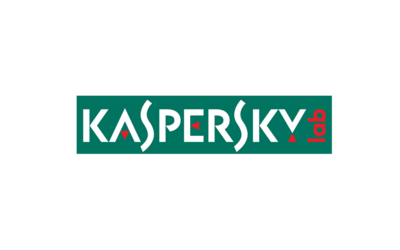
Kaspersky Benefits
Top-Tier Malware Detection: Consistently ranks high in independent tests, offering reliable protection against known and emerging threats.
Advanced Threat Defense: Utilizes machine learning and behavior analysis to identify and neutralize zero-day attacks.
Real-time Protection: Continuously scans files, emails, websites, and network traffic to identify threats in real time.
Multi-Layered Security (Paid Plans): Offers a comprehensive security suite, including:
Web Filtering: Blocks access to malicious websites.
Vulnerability Scanner: Identifies weaknesses in your system and software for patching.
Safe Browsing: Warns you about malicious websites before you visit them.
Two-Way Firewall (Paid Plans): Monitors incoming and outgoing network traffic for unauthorized access.
Customer Support: Offers various customer support options, including live chat, email, and phone support.
Kaspersky DrawBacks
Limited Features in Free Version: The free version offers basic protection but lacks real-time scanning and advanced features.
Subscription Costs: Paid plans can be slightly more expensive compared to some competitors.
Geopolitical Concerns (Past): Kaspersky has faced scrutiny in the past regarding its ties to the Russian government. However, the company maintains its commitment to user privacy and data security
9. Sophos
Sophos is a well-regarded name in cybersecurity, offering a range of security solutions for businesses and individuals.
It is a software suite that safeguards your devices from malware, viruses, ransomware, phishing attacks, and other online threats.
Sophos employs real-time protection, advanced threat detection, and multi-layered security to keep you safe.
Sophos Intercept X Endpoint does protect Linux systems.
It offers a comprehensive security solution for Linux server workloads, including features like ransomware file protection, deep learning AI-powered malware prevention, behavioral analysis, and more.
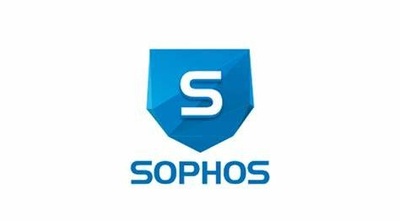
Sophos Benefits
Excellent Malware Detection: Consistently performs well in independent tests, offering reliable protection against known and emerging threats.
Real-time Protection: Continuously scans files, emails, websites, and network traffic to identify threats in real time.
Advanced Threat Detection: Utilizes machine learning and behavior analysis to identify and block zero-day attacks.
Multi-Layered Security (Paid Plans): Offers a comprehensive security suite (paid plans) including:
Firewall: Monitors incoming and outgoing network traffic for unauthorized access.
Web Filtering: Blocks access to malicious websites.
Parental Controls: Manages screen time, filters websites, and monitors online activity for your children.
VPN (Some Plans): Encrypts your internet traffic for secure browsing and private access to geo-restricted content.
Sophos DrawBacks
Limited Features in Free Version: The free version offers basic protection but lacks real-time scanning and advanced features.
Subscription Costs (Paid Plans): Paid plans can be expensive compared to some competitors.
No User-Friendly Antivirus for Individual Linux Users.
10. Malwarebytes
Malwarebytes is a well-regarded security application that specializes in detecting and removing malware, including viruses, worms, ransomware, and other malicious software.
As a powerful anti-malware solution for Windows, macOS, and mobile devices, it is known for its effective on-demand scanning and remediation capabilities.
Malwarebytes has carved a niche as a robust anti-malware solution, but its support for Linux is restricted and is available on Windows and MacOS.
Malwarebytes offers “Malwarebytes for Endpoint Protection” – a paid solution that includes anti-malware capabilities for Linux servers and endpoints.
However, this caters more to businesses and requires command-line management, making it less suitable for casual Linux users.

Malwarebytes Benefits
Excellent Malware Detection: Renowned for its ability to detect and remove a wide range of malware threats.
On-Demand Scanning: Ideal for running manual scans to identify and remove malware that might have bypassed real-time protection.
Real-time Protection (Paid Plans): Offers real-time protection against malware in paid plans.
Lightweight (Windows/Mac): The application itself is relatively lightweight and doesn’t consume excessive resources on your system (Windows/Mac).
Malwarebytes DrowBacks
Limited Features in Free Version: The free version offers on-demand scanning but lacks real-time protection and additional features.
Subscription Costs (Paid Plans): Paid plans can be pricier compared to some competitor offerings.
No User-Friendly Antivirus for Individual Linux Users.
Do I need server antivirus software?
While inherent security features make Linux less vulnerable, server antivirus software offers additional protection against malware, ransomware, and other threats.
For Windows servers, antivirus software is crucial due to its larger target for cyberattacks.
Is free server antivirus software enough?
Free options like ClamAV offer basic protection but might lack real-time scanning and advanced features.
Paid solutions often provide more comprehensive security and centralized management for multiple servers.
Why use an Antivirus on Windows Server?
While new malware and threats constantly pop up, antivirus acts like a tireless sentry by continually scanning your server for suspicious activity.
It can’t guarantee complete immunity, but identifying unusual file changes or attempted unauthorized access can alarm and neutralize the threat before it can wreak havoc on your data or bring your server down.
Why use an Antivirus on Linux?
Linux servers, known for their resilience, might not need the same antivirus protection as Windows.
However, antivirus software on Linux acts like a backup guard, still vigilant against emerging threats like malware and zero-day exploits, offering an extra layer of security for your server’s data.
While Sophos offers robust security solutions for businesses, Sophos Antivirus is not designed for individual Linux users.
What are the benefits of server antivirus software?
- Real-time protection: Continuously scans for and blocks threats as they attempt to enter your server.
- Advanced threat detection: Goes beyond basic malware to identify zero-day attacks and emerging threats.
- Centralized management: Manages security across multiple servers from a single console (often in paid plans).
- Improved system performance: Some antivirus solutions are lightweight and minimize the impact on server resources.
Conclusion
A top-notch server antivirus employs behavior analysis, acting like a watchful guardian that scrutinizes your server for sneaky malware antics.
Beyond antivirus software, practicing safe browsing habits, using strong passwords, and being vigilant about potential threats is crucial.
Unlike Windows and macOS, Linux inherently has strong security features, making traditional antivirus software less crucial. However, you are recommended to consider additional protection.
FAQ
2. How does server antivirus software differ from regular antivirus solutions?
Server antivirus software is optimized specifically for server environments, offering features such as real-time scanning for multiple users, centralized management, and compatibility with server operating systems. In contrast, regular antivirus solutions are typically designed for individual computers and may lack the advanced capabilities required to protect servers.
3. Which features should I look for in server antivirus software?
Key features to consider include real-time protection, automatic updates, low system resource usage, centralized management dashboards, customizable scanning options, and advanced threat detection. These features help maintain server performance and protect against the latest threats.
4. Is server antivirus software necessary for Linux servers?
Yes, server antivirus software is necessary for Linux servers as well. Although Linux is known for its security, it can still be vulnerable to malware and exploits. Antivirus software adds an essential layer of protection to detect and remove threats that may target your server environment.
5. How do I choose the best server antivirus software for my needs?
Start by identifying your server’s operating system and the specific requirements of your business or project. Consider user reviews, compatibility, ease of use, update frequency, and the type of support offered. It is important to select a reputable provider with a track record of strong protection.
6. Can server antivirus software impact server performance?
Most modern server antivirus software is designed to have minimal impact on server resources. However, the effect on performance can vary depending on the solution. Look for antivirus software that allows you to schedule scans and adjust resource usage to balance protection and server performance.
7. How often should I update server antivirus software?
You should ensure that your server antivirus software is set to update automatically on a daily basis. Regular updates are essential to protect your server against new viruses, malware, and security vulnerabilities.
8. Does server antivirus software protect against ransomware?
Yes, many server antivirus software solutions include protection against ransomware by detecting and blocking suspicious activity, and identifying known ransomware threats. When choosing a solution, check that it specifically offers ransomware protection to keep your server data safe.
9. Can server antivirus software detect threats from file uploads or email attachments?
Server antivirus software can scan files and email attachments entering your server for malicious content. It is a valuable tool for detecting and blocking threats introduced through user uploads, emails, and other input channels.
10. What should I do if server antivirus software detects a threat on my server?
If your server antivirus software identifies a threat, follow its recommended action such as quarantining or deleting the infected file. It is also wise to perform a full server scan, review system logs, and update all software to address potential vulnerabilities. If you need assistance, contact your antivirus provider’s support team for guidance.